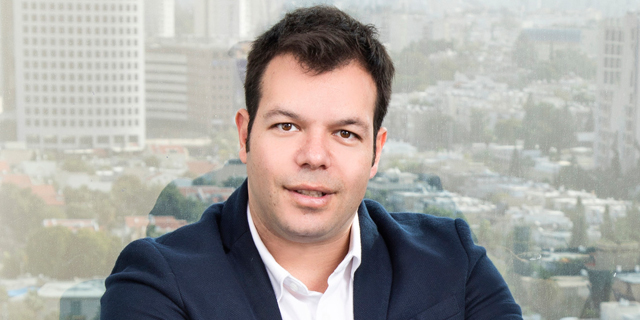
To achieve its mission of transforming the note-taking world, Verbit wants to become the “Uber of transcription”
The transcription service can be used in a variety of verticles such as education, healthcare, and media
James Spiro | 09:49, 10.09.20
It’s every journalist’s dream. To spend more than an hour talking with a subject and then suddenly having the entire conversation written up with almost perfect accuracy. With Verbit, media companies, law practices, medical facilities, or educational institutions can now use the platform to help record notes and conversations.
Founder and CEO Tom Livne was inspired to create a transcription service after starting his career in law. “No one is perfect, so I hope you’ll forgive me for that,” he told CTech in an interview. “But there are two good things about being a lawyer: firstly, I worked closely with entrepreneurs and I realized I didn’t want to be the legal advisor, I wanted to be the entrepreneur. The second thing was that I saw how much time and money was spent on legal transcription.”
It’s true. Journalists especially have learned how essential, yet time-consuming, effective note-taking can be. Livne confessed that when he had the original thought for Verbit, it was 2011 and natural language processing (NLP) was not yet ready to tackle some of the challenges such as context, accents, or jargon.
In the three years since founding the company in 2017, the AI-based transcription can claim an 85% accuracy rate in its automated transcription services. For the other 15%, some 15,000 human contractors from 120 countries are there to listen to the recording in real-time and flag any inaccuracies picked up by the software.
Today, Verbit has more than 120 employees and has raised a total of $65 million. Speaking to CTech, Livne reveals that 2020 has been its most successful year ever - growing to 500 paid customers and seeing revenues grow fivefold.
“There are Covid-19 winners and Covid-19 losers,” Livne said. “We’re one of the winners.”
The transcription service can be used in a variety of verticles but Verbit found success in one particular industry during 2020 and the year of Covid-19: education. While the entire world has been battling lockdowns and conducting Zoom classes, Verbit has been helping students and teachers with their transcription services during online lectures. Today, it is used by some of the most prestigious institutions in the United States, such as Harvard and Stanford University.
Eventually, Verbit will branch out and penetrate more industries, like the medical field where its service can be used by doctors to take notes while talking about medical procedures directly to patients. In the meantime, the technology is working towards a 99% accuracy rate.
Related Stories
However, as with any contractor-based organization, there are questions surrounding the job security of its freelancers who work on filling the gaps of the remaining 15%. Verbit wants to be the Uber of transcription services, but does it care that Uber wants to replace its humans with fully-autonomous AI?
“It'll be six and 10 years from now,” Livne said. “There are so many parameters that (are affected) because of the voice text.” He assured CTech that even though the workload might decrease on each project, growing demand will ensure there are more projects to assign to the freelancers currently operating around the world. Accepting freelancers to join Verbit includes a vigorous test that Livne claims only 10% of participants pass. That means that this year saw more almost 150,000 applicants to transcribe services from their remote locations. After our call with Verbit, CTech received the transcription of the 40-minute conversation with Livne - for the most part, it was readable. The lines broke up every 5-6 words as if designed for captions or subtitles on television, and it annoyingly included every ‘um’ and ‘ah’ said by the interviewer (I assume these are fixed by the contractors if requested). While it was appealing to sit back and wait for the 3 hours while the file processed, the raw file sent to CTech provided more headaches than solutions after time was spent on formatting and additional interpretation. Verbit might dream of full autonomation one day, but for now, humans still remain essential.